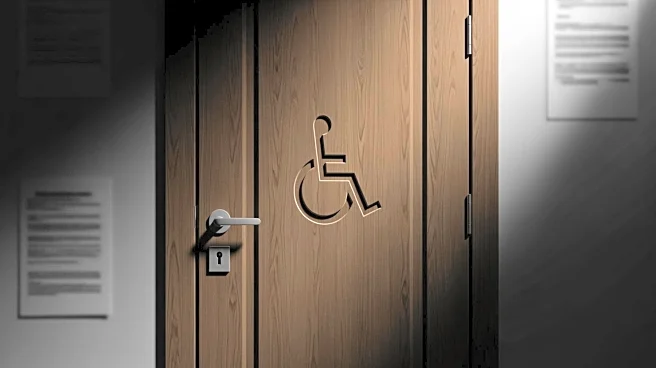What's Happening?
The decision by eight Democratic-aligned senators to vote in favor of reopening the U.S. government has sparked significant concern among disabled Americans, particularly those with chronic illnesses.
The vote was contingent on a promise from Senate Republican leadership to hold a future vote on restoring Affordable Care Act (ACA) tax credits, which help millions afford health insurance. Without these subsidies, insurance premiums could more than double, potentially leaving 4.8 million people unable to afford coverage. The decision has been perceived as a betrayal by many who rely on these subsidies, as the promise of a future vote does not guarantee the restoration of the credits.
Why It's Important?
The potential loss of ACA subsidies poses a significant threat to the health and financial stability of millions of Americans, particularly those with chronic illnesses who require ongoing medical care. The decision to reopen the government without securing the restoration of these subsidies highlights the precarious nature of healthcare access in the U.S. and the political challenges in maintaining support for vulnerable populations. The situation underscores the broader debate over healthcare policy and the role of government in ensuring access to affordable care.
Beyond the Headlines
The decision to prioritize reopening the government over securing ACA subsidies raises ethical questions about the value placed on the lives of disabled and chronically ill individuals. It also reflects the broader political dynamics at play, where healthcare access becomes a bargaining chip in legislative negotiations. The outcome of this situation could influence future policy decisions and the political landscape, particularly as it relates to healthcare reform and the protection of vulnerable populations.










